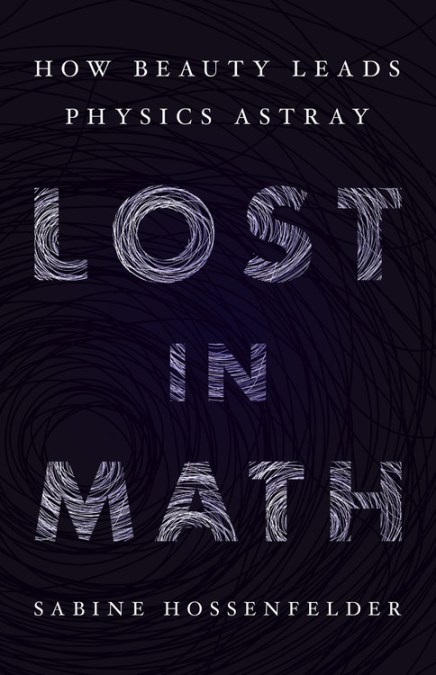 From Sabine Hossenfelder, author of Lost in Math: How Beauty Leads Physics Astray, says science has a problem and we need to talk:
From Sabine Hossenfelder, author of Lost in Math: How Beauty Leads Physics Astray, says science has a problem and we need to talk:
For the past 15 years, I have worked in the foundations of physics, a field which has not seen progress for decades. What happened 40 years ago is that theorists in my discipline became convinced the laws of nature must be mathematically beautiful in specific ways. By these standards, which are still used today, a good theory should be simple, and have symmetries, and it should not have numbers that are much larger or smaller than one, the latter referred to as “naturalness.”
Based on such arguments from beauty, they predicted that protons should be able to decay. Experiments have looked for this since the 1980s, but so far not a single proton has been caught in the act. This has ruled out many symmetry-based theories. But it is easy to amend these theories so that they evade experimental constraints, hence papers continue to be written about them.
People said it was just the maturity of the field.
But this doesn’t explain the stunning profusion of blundered predictions. It’s not like we predicted one particle that wasn’t there. We predicted hundreds of particles, and fields, and new symmetries, and tiny black holes, and extra-dimensions (in various shapes, and sizes, and widths), none of which were there.
No, and crackpot cosmology around the non-evidence-based multiverse has begun to play too big a role in the science news cycle as a result.

Of course I am not the first to figure beauty doesn’t equal truth. Indeed, most physicists would surely agree that using aesthetic criteria to select theories is not good scientific practice. They do it anyway. Because all their colleagues do it. And because they all do it, this research will get cited, will get published, and then it will be approved by review panels which take citations and publications as a measure of quality. “Baked in bias” is a pretty good summary. Sabine Hossenfelder, “Science has a problem, and we must talk about it” at BackRe(Action
The challenge is simpler than sometimes supposed. People must be willing to accept a truth they don’t like. If the universe is not as we would like it to be, imagining a different one is fun and maybe profitable, maybe aesthetically pleasing. But it is not science.
See also: The fight over the universe has turned ugly, with accusations of “cheating”
Sabine Hossenfelder: The multiverse is “a fringe idea”
and
Free will is compatible with physics (cf Sabine Hossenfelder)